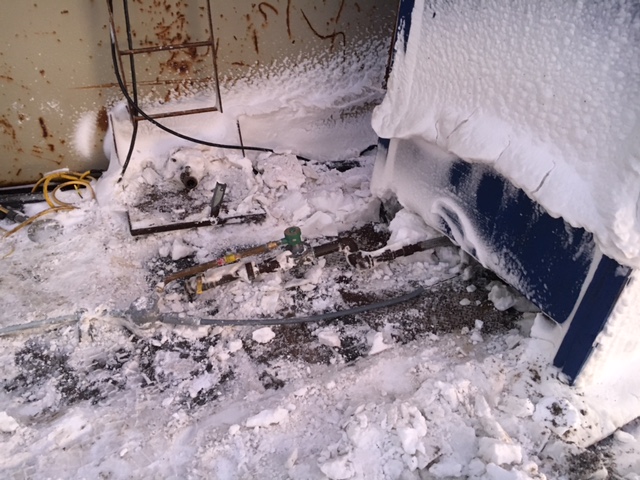Alaska borough agrees to fines, sweeping improvements in pollution management
The North Slope Borough will pay $6.5 million in fines, and make changes to how it handles oil spills and other waste, federal officials said.

Alaska’s largest Arctic local government has agreed to pay $6.5 million in fines and embark on comprehensive improvements to settle charges regarding several years of hazardous and solid waste mismanagement, U.S. officials said on Wednesday.
The North Slope Borough spans nearly 95,000 square miles over much of Alaska’s Arctic from Point Hope on the Chukchi Sea coast in the west, to Kaktovik on the northeastern corner of Alaska near the Canadian border. It includes the state’s northernmost city, Utqiagvik, and a big chunk of its oil and gas development, such as the large fields at Prudhoe Bay.
The borough’s poor practices stretch back nearly a decade and affected communities and work-camp sites there, according to the federal complaint and proposed consent decree, both filed Wednesday in U.S. District Court in Anchorage.
Violations also included failure to abide by oil-spill prevention regulations at more than 70 sites, lapses that contributed to at least two spills — a 2014 discharge of oil into lagoon wetlands at Point Lay and a 2017 release of diesel fuel from a breached tank into wetlands in Kaktovik. Damages from the Kaktovik spill were compounded when borough snow-clearing crews spread fuel-contaminated snow, according to the complaint.
The practices violated the Resource Conservation and Recovery Act, the Clean Water Act and the Spill Prevention, Control, and Countermeasure rule, the complaint said.
The settlement, if enacted, will improve the lives of North Slope residents, federal officials said.
“Today’s settlement will ensure that the Borough completely upgrades its waste and oil management practices to protect its residents and future generations from exposure to hazardous waste and to prevent spills to the surrounding environment,” Assistant U.S. Attorney General Todd Kim said in a statement issued by the Justice Department. “The work to be performed under this settlement will protect the vital tundra wetlands and waterways that surround many of the Borough’s communities.”
A similar statement was issued by the Environmental Protection Agency’s Seattle-based regional office.
“By coming into compliance, properly managing hazardous waste, and preventing oil spills, the Borough will reduce health and safety risks and better protect its workers, its communities and the environment,” EPA Region 10 Acting Regional Administrator Michelle Pirzadeh said in the statement.
Officials from the North Slope Borough did not respond to requests for comment.
Tasks for the borough, under the consent decree, include the closure of all unpermitted hazardous waste storage sites, upgrades of waste facilities, development of a comprehensive waste-management plan, revision of its oil-spill contingency plan and the hiring of a full-time environmental official and an independent third-party auditor to monitor progress.
The consent decree is the product of several years of investigation into storage and transport of waste and hazardous materials.
The deal is subject to a public comment period to run for 60 days after a notice is published in the Federal Register and, after that, court approval.
This was not the first federal action against the borough for RCRA violations. Two previous settlements resulted in orders for improved management of hazardous wastes.
In 2015, the borough agreed to pay $445,336 to settle an EPA enforcement action over unpermitted storage of more than 45,000 pounds of hazardous waste in Utqiagvik. As part of the settlement, the borough agreed to clean up that site in addition to paying the penalty.
In 1998, an EPA settlement produced a commitment from the borough to construct a hazardous waste facility costing $3 million to $4 million, as well as pay a $24,232 penalty.
Hazardous and solid waste problems have plagued Arctic regions beyond the North Slope.
An Arctic Council interim report on waste management in Alaska, Canada and Finland cited stiff challenges in small communities.
“High transportation costs and poor economies-of-scale, together with related issues of expensive infrastructure, difficulties with operation and maintenance of waste management sites, and complex socioeconomic issues mean conventional solutions are often not successful,” said the report, issued in 2019 by the council’s Sustainable Development Working Group.